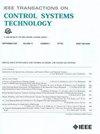Eco-Driving of Metro Trains Considering Variable Efficiency of Propulsion System
IF 3.9
2区 计算机科学
Q1 AUTOMATION & CONTROL SYSTEMS
引用次数: 0
Abstract
The main goal of energy-efficient train control (EETC) is to devise strategies and methods in order to consume the least amount of energy while respecting the system and the operational constraints. Typically, such problems are tackled by breaking the trajectory into various singular and regular phases. The main focus of this article is to provide a numerically efficient algorithm to solve this problem in a unified way instead of dealing with phases. In this research work, a convex nonlinear model for propulsion power is proposed. Using this model, the EETC problem is formulated as an optimal control problem (OCP) using Pontryagin’s maximum principle (PMP). Maximum effort limitation of the propulsion system, and acceleration and deceleration limits are considered as control constraints. Track speed limits are considered as state constraints. The optimality conditions allow formulating a boundary value problem (BVP). An initialization procedure is proposed, which enables to design continuation procedures (CPs) to solve the BVP. The results are compared with the dynamic programming (DP) solution. A tradeoff analysis between journey time and energy consumption is presented.考虑推进系统变效率的地铁列车生态驾驶
列车节能控制(EETC)的主要目标是制定策略和方法,以消耗最少的能量,同时尊重系统和运行约束。通常,解决这类问题的方法是将轨迹分解为各种奇异相和规则相。本文的主要重点是提供一种数值上有效的算法,以统一的方式解决这个问题,而不是处理阶段。在本研究中,提出了一种推进动力的非线性凸模型。利用该模型,利用庞特里亚金极大值原理(PMP)将EETC问题表述为最优控制问题(OCP)。将推进系统的最大努力限制和加减速限制作为控制约束。轨道速度限制被认为是状态约束。最优性条件允许表述边值问题(BVP)。提出了一种初始化过程,用于设计求解BVP的连续过程。结果与动态规划(DP)方法进行了比较。给出了行程时间与能耗的权衡分析。
本文章由计算机程序翻译,如有差异,请以英文原文为准。
求助全文
约1分钟内获得全文
求助全文
来源期刊

IEEE Transactions on Control Systems Technology
工程技术-工程:电子与电气
CiteScore
10.70
自引率
2.10%
发文量
218
审稿时长
6.7 months
期刊介绍:
The IEEE Transactions on Control Systems Technology publishes high quality technical papers on technological advances in control engineering. The word technology is from the Greek technologia. The modern meaning is a scientific method to achieve a practical purpose. Control Systems Technology includes all aspects of control engineering needed to implement practical control systems, from analysis and design, through simulation and hardware. A primary purpose of the IEEE Transactions on Control Systems Technology is to have an archival publication which will bridge the gap between theory and practice. Papers are published in the IEEE Transactions on Control System Technology which disclose significant new knowledge, exploratory developments, or practical applications in all aspects of technology needed to implement control systems, from analysis and design through simulation, and hardware.
 求助内容:
求助内容: 应助结果提醒方式:
应助结果提醒方式:


